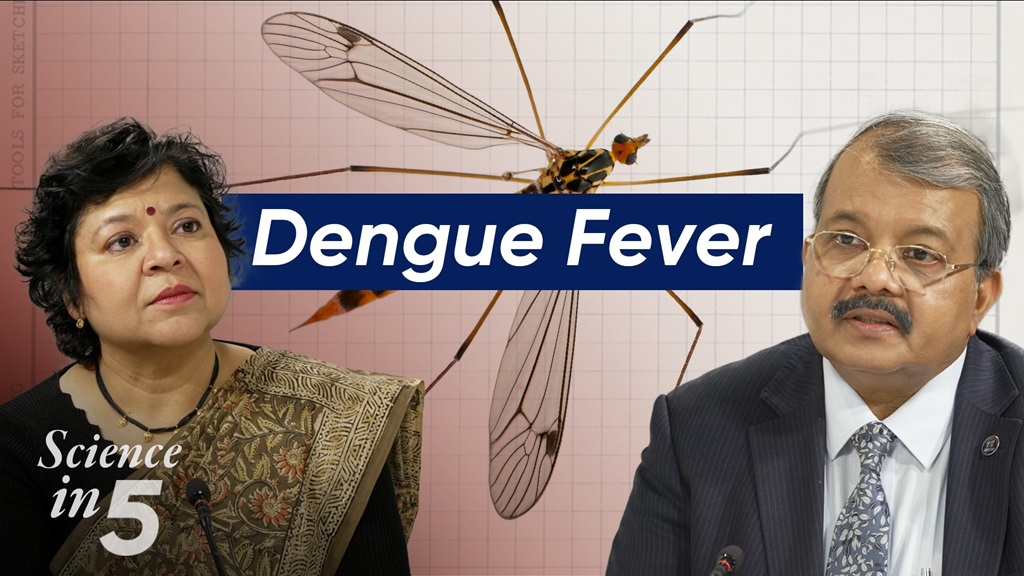Episode #115 - Dengue Fever
Alternative media
Related links
Transcript
VGS Why is dengue fever back in the news again? Why are we seeing it in areas where it did not exist before? And what about treatment? What about vaccination? Here to talk about all of this is Dr. Raman Velayudhan. Welcome, Raman. Talk to us about dengue fever, what causes it and how does it spread?
RV Dengue fever is a virus fever caused by the bite of Aedes mosquito. In majority of the cases, these are mild symptoms with body pain, headache and rashes, which lasts for a few weeks. However, about 5% of the cases are severe where the patient needs hospital care. The main symptoms of severe dengue are vomiting, bleeding of the gums, plasma leakage, and sometimes organ failures. These cases need to be managed in the hospital to prevent death. However, most of the patients recover from it. But the delay in admission can cause unnecessary fatalities. So in many cases, the patient takes time to come and that delay is a crucial point. Dengue is transmitted from one person to the other by the bite of the mosquito.
VGS You know, when I was growing up in New Delhi, I never heard about dengue until a certain point. And then dengue cases started appearing. We are seeing it in places where it did not exist before, like Spain or Bhutan. Why is this happening?
RV So the more water you store, the more areas for it to breed. So this has all helped the mosquito to adapt and spread the disease to newer areas and new countries. Over 100 countries are endemic for this disease and approximately 4 billion people are at risk of it. The mosquito has adapted so well that it is continuing to spread. The mosquito has adapted so well that it is continuing to spread to newer areas where the climatic conditions are suitable.
VGS Are there any treatments or vaccine? Does that work for dengue fever?
RV There are currently no treatments for dengue. Most of the cases are managed at home, mainly to prevent the main symptoms of dengue, which are fever or joint pains. So tablets are given for controlling that. Paracetamol is given as a medicine for this, while ibuprofen and aspirin are discouraged since that can lead to bleeding. Currently there is only one vaccine which is approved and that is recommended for age group between 6 to 16 in high transmission settings. There are several new developments which includes better diagnostic kits, medicines and mosquito control tools. They will be made available as the studies and results are published. Currently, there are no other effective methods which are in use, but we are using traditional methods to control the mosquitoes.
VGS Raman, talk to us about why dengue fever is so hard to control and how can we protect ourselves?
RV The dengue fever is hard to control because this mosquito has adapted extremely well to urban centres. Secondly, their eggs can remain dry for several months and hatch as soon as they come in contact with water. Thirdly, this mosquito is continuing to spread to newer areas where conditions are favourable to them, and this includes urban and semi-urban pockets. The dengue mosquito bites during the daytime. Hence, we have to protect ourselves with repellents and other personal protection measures. So before we go to work or before children go to school, they must be provided with repellents. So they are protected from the bite of this mosquito. Other measures include preventing mosquito breeding in and around your homes, covering your water storage containers, and at the same time, those who have dengue or people who tend to sleep during the day should use a mosquito net.
VGS Thank you, Raman. That was Science in 5 today. Until next time, then. Stay safe, stay healthy and stick with science.

